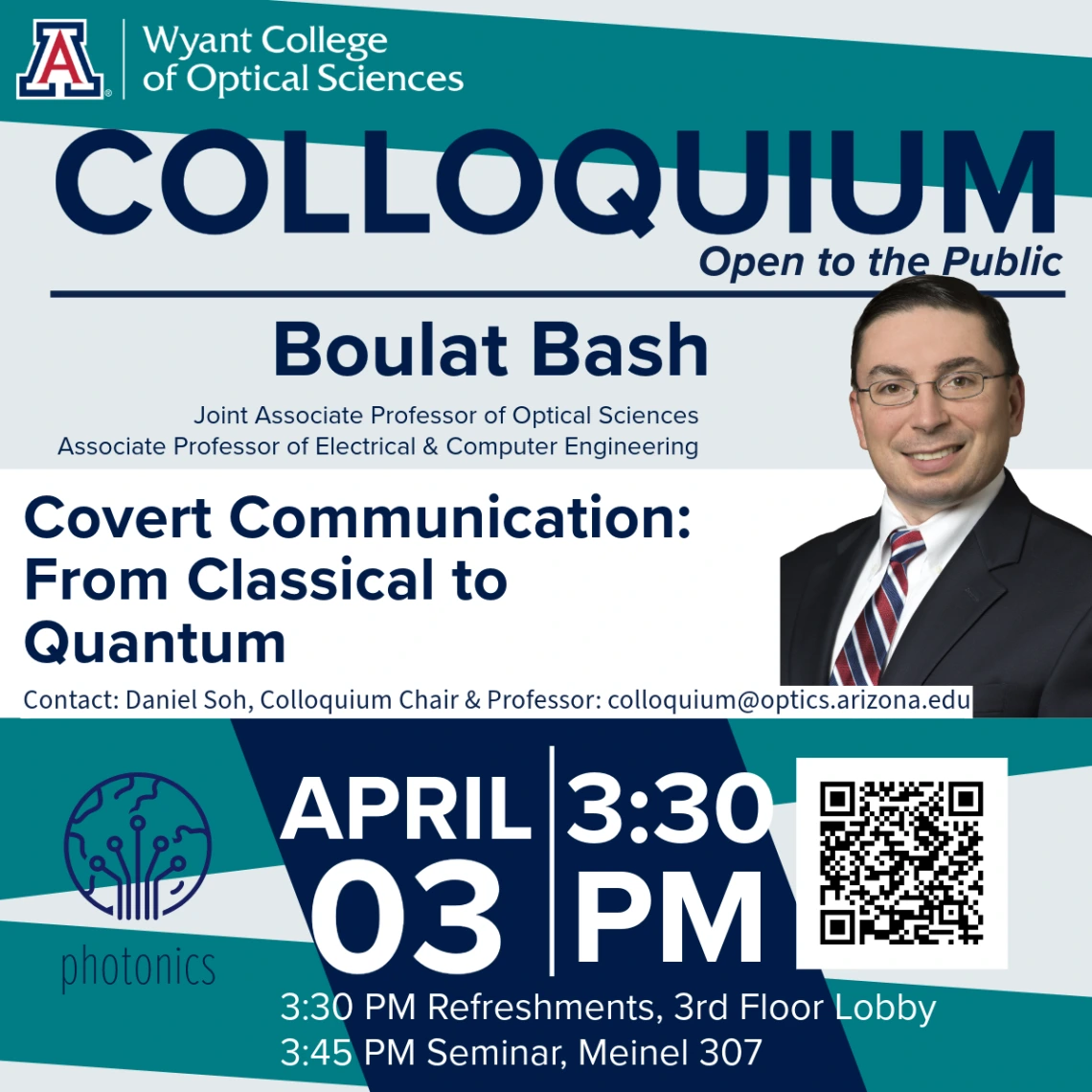
When
Where
Title
Covert Communication: From Classical to Quantum
Abstract
Hiding transmitted signals is of paramount importance in many communication settings. While traditional security (e.g., encryption) prevents unauthorized access to message content, detection of the mere presence of a message by the adversary can have a significant negative impact. This necessitates the use of covert communication, which not only protects the information contained in a transmission from unauthorized decoding, but also prevents the detection of a transmission in the first place. Although practical covert communication systems have been around since the advent of spread-spectrum, exploration of their fundamental limits is a new direction in information theory. Surprisingly, analysis of covert communication systems reveals that, while the Shannon capacity of a covert communication channel is zero, it still allows transmission of a large volume of covert data. Classical covert communication also presents a unique operating regime for deriving significant gain from pre-shared quantum entanglement. However, the necessity for noise to hide transmissions challenges covert communication of quantum data (i.e., qubits). In this talk, I will present these fundamental results, emphasizing quantum-optical approaches to covert communication. I will focus on their intuitive explanation, rather than their mathematical derivations. I will conclude with directions for future research.
Bio
Boulat A. Bash received the B.A. degree in economics from Dartmouth College in 2001 and the M.S. and Ph.D. degrees in computer science from the University of Massachusetts, Amherst, MA, in 2008 and 2015, respectively. He is currently an Associate Professor with the Electrical and Computer Engineering Department at the University of Arizona, Tucson, AZ. He was previously a Scientist with the Quantum Information Processing Group at Raytheon BBN Technologies, Cambridge, MA. His research interests include quantum information processing, security, privacy, communications, signal processing, and information theory. He won an honorable mention at the 2015 NSA Best Scientific Cybersecurity Paper Competition, the Raytheon Space and Airborne Systems Excellence in Engineering and Technology Award, and the NSF CAREER award.
Can't Join Us In Person?
Register for the Zoom Webinar!
Subscribe to Upcoming Colloquium Announcements
Visit our website for future lecture dates and speaker information
